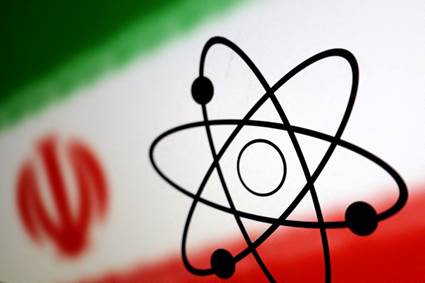Description

Copyright infringement is not intended
Context: A European Union proposal to revive the 2015 Iran nuclear deal “can be acceptable if it provides assurances” on Tehran’s key demands, the state news agency IRNA said.
Details:
- The EU said it had put forward a “final” text following four days of indirect talks between U.S. and Iranian officials in Vienna.
- No more changes could be made to the text, which has been under negotiation for 15 months. He said he expected a final decision from the parties within a “very, very few weeks.”
- IRNA quoted the unidentified Iranian diplomat as saying Tehran was reviewing the proposal.
- The Islamic Republic has sought to obtain guarantees that no future U.S. President would renege on the deal if it were revived, as former President Donald Trump did in 2018 and restored harsh U.S. sanctions on Iran.
- However, President Joe Biden cannot provide such ironclad assurances because the deal is a political understanding rather than a legally binding treaty.

Background:
- Diplomats from Iran and world powers are seeking a deal to revive the Tehran’s 2015 nuclear accord.
- The United States has participated indirectly in the talks because it withdrew from the accord in 2018 under then President Donald Trump.
- The accord, formally known as the Joint Comprehensive Plan of Action, granted Iran sanctions relief in exchange for curbs on its nuclear program.
The 2015 JCPOA agreement:
- It sought to cut Iran off a possible path to a nuclear bomb in return for lifting of economic sanctions.
- Iran agreed to cut its stockpile of enriched uranium by 98% to 300 kg and keep them at a low purity level of 3.67%. In return, the Obama administration lifted sanctions.
- Restrictions were introduced on the number of centrifuges it could keep and Iran agreed to open all its facilities to the inspection of the International Atomic Energy Agency (IAEA).
India-Iran:
- Trade with central Asia: Iran-India relations are of vital importance for India because of Iran's Chabahar port, which plays a fundamental role in India's trade connectivity with Afghanistan, Central Asia, Eurasia and Europe.
- Energy security: India being the second largest importer of crude oil from Iran has begun to effectuate a plan to ensure that there is no shortage in supply by increasing imports from other countries.
- Sanction impact: The immediate impact of the sanctions on India was that it can no longer use US dollars for transactions with Iran.
- Investment by Indian companies in Iran's oil and gas development projects and pipeline projects, not permitted to open new US bank accounts and facing restrictions on loans, licences and Ex-Im credit.
- In December 2018, India and Iran agreed to revive its 2012 rupee-rial payment mechanism to receive payments in Indian rupee, where half of the payments would be used to import products from India.
Impacts of Iran’s sanctions on India:
- Energy security: Cutting down crude imports from Iran will impair India’s energy-security needs affecting inflation and slow down economic growth.
- China’s growing presence: In the absence of Indian infrastructural development projects in Iran, the vacuum created is likely to be filled by China amid fast-changing geopolitics.
- Lack of clear policy: India’s policy towards Iran and developments in the Middle East has been largely reactive.
- Create a balance between U.S. and Iran: In the backdrop of tensions between US and Iran, India has had to re-adjust its own relations with Iran while maintaining strategic ties with US and Israel.
https://epaper.thehindu.com/Home/ShareArticle?OrgId=GIAA55127.1&imageview=0










